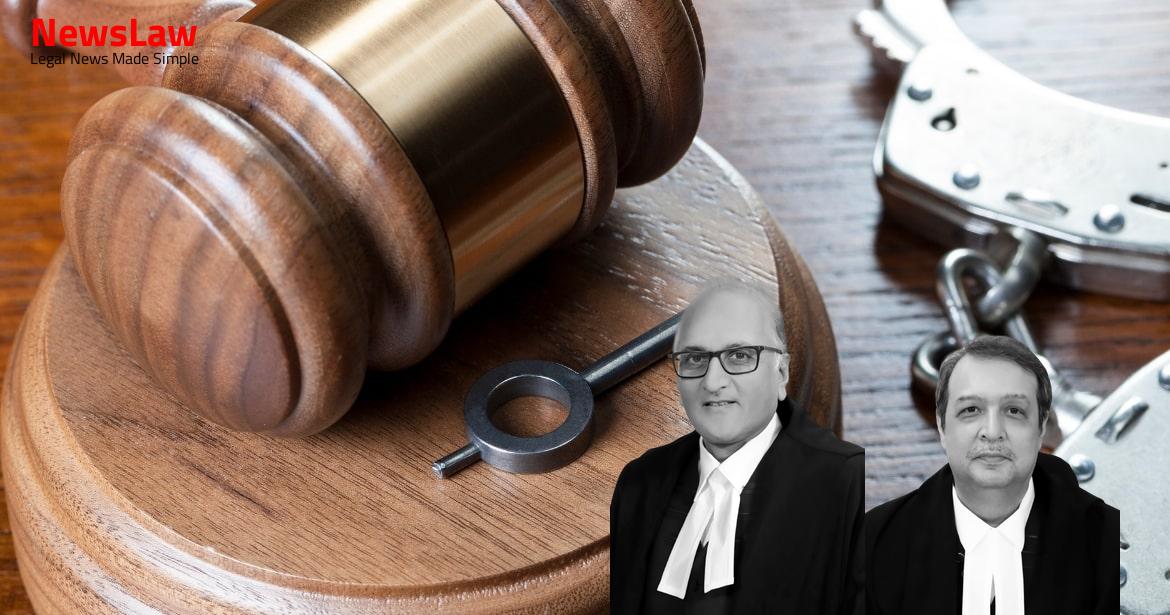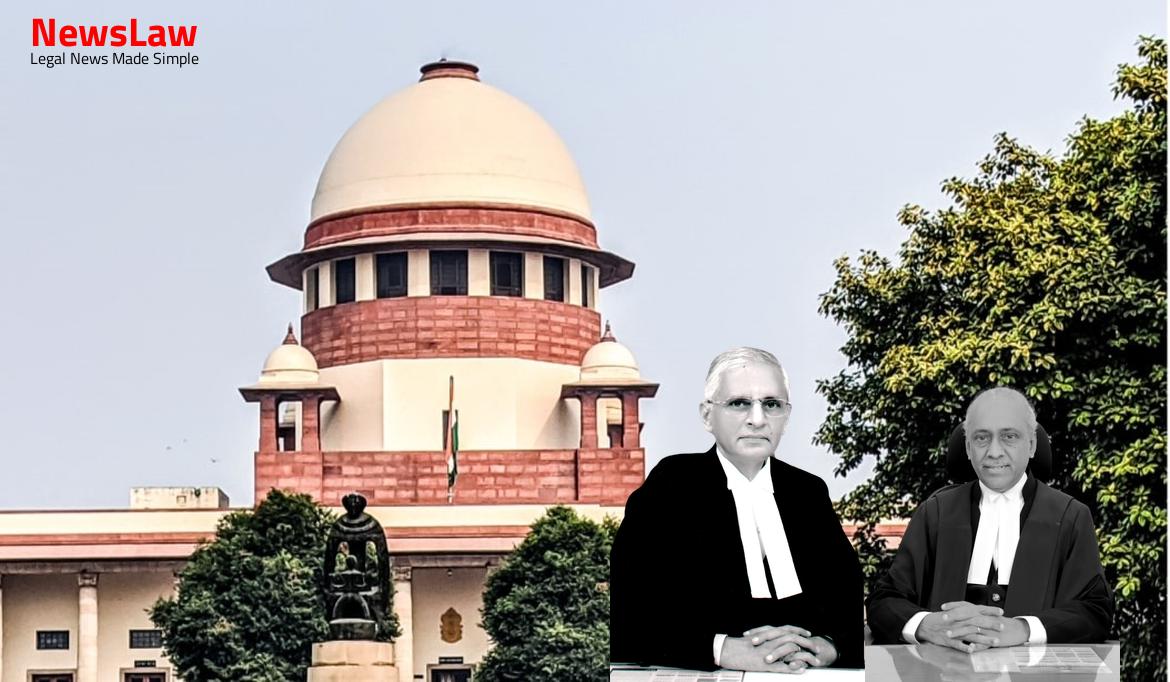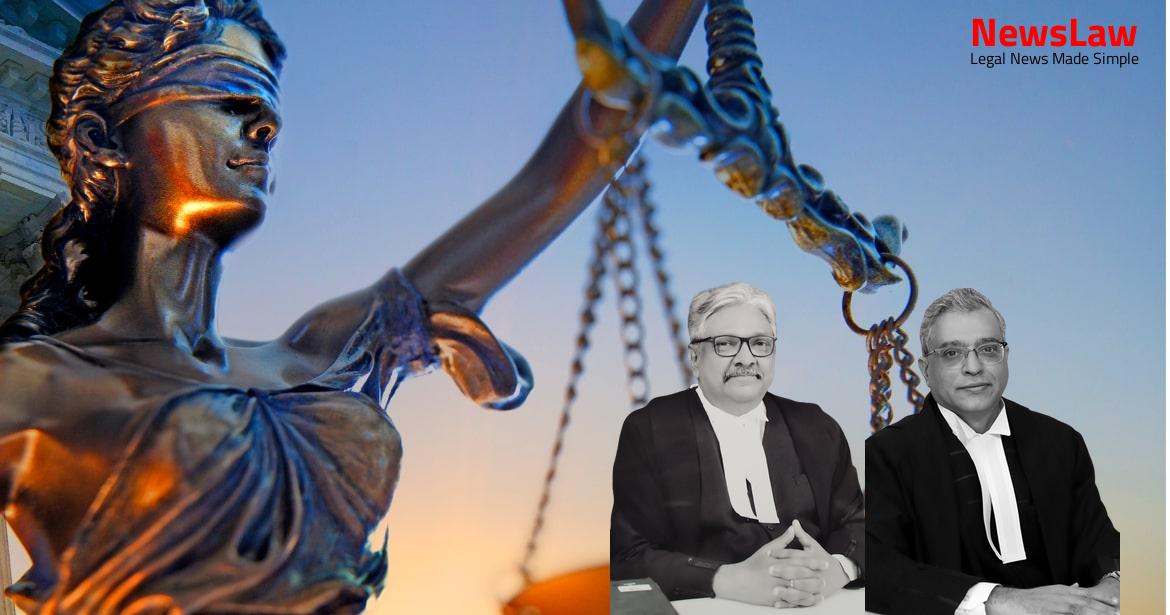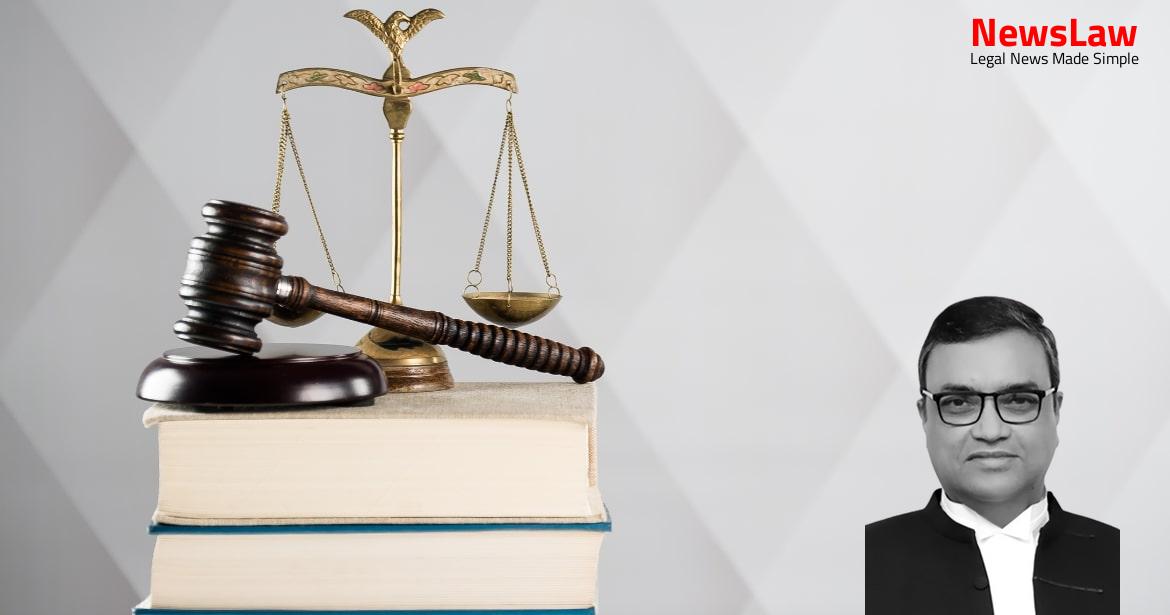Delve into the complexities of court discretion and limitation considerations in the context of allowing amendments to pleadings in legal cases. The case highlights the importance of balancing the interests of the parties, ensuring fairness, and preventing further litigation. Stay tuned to understand how the court’s legal analysis impacts such pivotal decisions.
Facts
- The respondents are the original plaintiffs and the appellant is the original defendant in Suit No. 894 of 1986 before the High Court of Judicature at Bombay.
- The suit was filed for the specific performance of an agreement dated 08.06.1979, with an alternative prayer for damages.
- The Chamber Summons filed by the plaintiffs sought permission to amend the plaint to enhance the amount claimed for damages.
- The High Court allowed the Chamber Summons, permitting the plaintiffs to make amendments to the plaint.
- The Division Bench affirmed the decision of the High Court in allowing the Chamber Summons for amendment.
- As a result, the plaintiffs were granted the opportunity to increase the amount claimed for damages in the suit.
Also Read: Balancing Power and Transparency: Electoral Bonds Struck Down, Disclosure Mandated
Issue
- The issue before the court was whether the assignee could be impleaded as one of the plaintiffs in the suit after a period of twenty-seven years from the date of institution.
- Key questions of law include whether the High Court made any material irregularity or jurisdictional error in its order, whether Order II Rule 2 CPC can be applied to an amendment application, and whether amending the plaint to enhance damages is affected by the doctrine of constructive res judicata.
Also Read: Recall of Resolution Plan Approval: Legal Analysis
Arguments
- The appellant’s senior counsel argued vehemently that the High Court made a serious error in the impugned order.
- The appellant’s counsel contended that Order II Rule 2 of the CPC should not apply to an application seeking amendment of plaint.
- Reference was made to a previous order of the Court in a similar case involving the same parties.
- The counsel argued against allowing the plaintiffs to amend the plaint after a long delay, citing a previous judgment from 2017 where a similar request was declined.
- The High Court’s failure to consider the implications of Order II Rule 2 of CPC and constructive res judicata in the amendment was highlighted.
- The significant increase in the damages amount sought through the amendment was pointed out.
- The appellant’s counsel prayed for the appeal to be allowed, the impugned order set aside, and the original amendment application rejected.
- It was emphasized that the High Court left the question of limitation open for trial and allowed the defendant to file an additional written statement.
- The respondents’ senior counsel argued that the High Court did not commit any error in the impugned order.
- The learned counsel for the plaintiffs argues that there is no merit in the appeal.
- The counsel prays for the dismissal of the appeal with costs.
Analysis
- Courts must be extremely liberal in granting prayers for amendments if irreparable loss and injury would be suffered without the amendment.
- In the case of L.J. Leach & Co. Ltd. & Anr. v. Jardine Skinner & Co., the court observed that amendments may be declined if a fresh suit on the amended claim would be barred by limitation.
- However, the bar of limitation is a factor to be considered in the exercise of discretion when deciding on allowing amendments.
- There is no absolute rule that in every case where relief is barred due to limitation, amendment should not be allowed.
- The present appeal raises the question of whether it falls under the proviso to Section 21(5) and Section 22(2) of the Specific Relief Act, 1963.
- The laws regarding allowing or rejecting a prayer for amendment of pleadings when limitation is pleaded by a party are discussed.
- The court has the discretion to allow an amendment if it serves the cause of justice and prevents further litigation.
- The court can order evidence to be led in an orderly manner.
Case Title: LIFE INSURANCE CORPORATION OF INDIA Vs. SANJEEV BUILDERS PRIVATE LIMITED (2022 INSC 896)
Case Number: C.A. No.-005909-005909 / 2022



